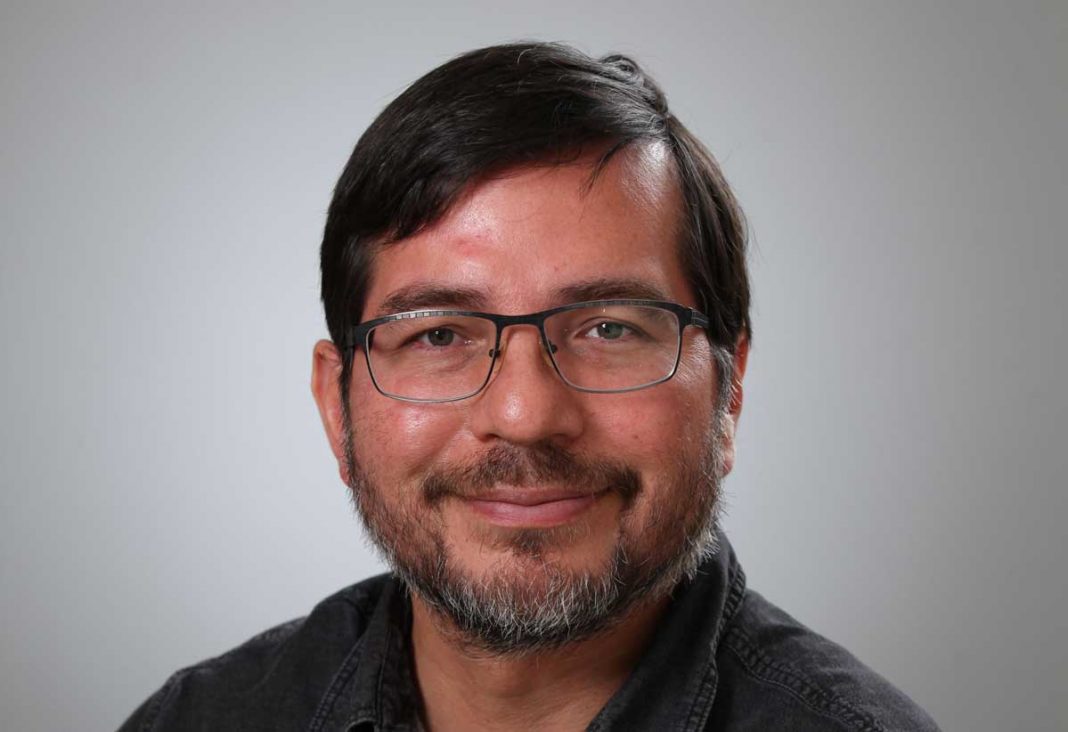SUDBURY—Wiikwemkoong band member Dr. Darrel Manitowabi, who now resides in Whitefish River First Nation, has been appointed as the Northern Ontario School of Medicine (NOSM) and the Associated Medical Services (AMS) Hannah Chair in the History of Indigenous Health and Indigenous Traditional Medicine for a five-year renewable term.
“NOSM is deeply honoured to have Dr. Darrel Manitowabi take on this valuable position,” said Dr. Sarita Verma, NOSM dean, president and CEO in a release announcing the move. “We are taking another major step in addressing how colonialism has affected the health and well-being of First Nations communities by no longer avoiding the history of wondrous healing and medicines in our society. We have much to learn from that history and NOSM is committed to the Calls to Action made by the Truth and Reconciliation Commission of Canada.”
“AMS is incredibly pleased to announce the addition of the NOSM-AMS Hannah Chair in the History of Indigenous Health and Traditional Medicine,” said Gail Paech, CEO of AMS, who explained that “The Hannah Chairs were established to create enduring cultures of teaching and research in the history of medicine and health care and we believe Dr. Darrel Manitowabi will bring a wealth of essential knowledge to his institution and Canada at large.”
The Expositor spoke with Dr. Manitowabi while he was catching up on some home renovations before taking up his duties effective July 1.
“I am looking forward to the opportunity and the challenge,” said Dr. Manitowabi. He explained that his duties will include a great deal of research into the history and development of Indigenous health and traditional medicines and healing practices. His role will be “to promote the discussion of the inherent, constitutional, treaty and international rights of all Indigenous peoples and communities and the protection of traditional knowledge and medicines from appropriation.”
Dr. Manitowabi’s research focus, as the chair, will be in the history of Indigenous Health and he will contribute to NOSM’s role in leading scholarly activity in the history of Indigenous Health.
“There will also be teaching and administrative duties,” said Dr. Manitowabi, “but most of my time will be dedicated to research.”
Dr. Manitowabi will also be liaising with other medical schools across the country—particularly those who historically have an extremely limited exposure to Indigenous traditions, medicines and culture. “NOSM is really the exception,” noted Dr. Manitowabi, as the school’s programs and student body has had a deep integration with Indigenous communities since its onset.
“I hope that our work will help to inform newly-trained medical professionals so that they can better serve Indigenous patients,” he said. “This will provide an opportunity to fill those gaps in many medical schools.”
Dr. Manitowabi recently served as the director of Northern and Community Studies at Laurentian University, and at NOSM as the Director of Indigenous Affairs in 2018 and the assistant dean of Graduate Studies in 2019.
“My background is in anthropology,” he said. His work as an Indigenous anthropologist included research interests in Anishinaabe ethno history and oral history, Indigenous gambling, Indigenous social determinants of health, Indigenous healing, Indigenous-state relations and Indigenous self-determination.
Dr. Manitowabi’s research and publications examine how the historical legacy of colonialism impacts the health and well-being of First Nations communities. His research in the history of Indigenous health situates the place of Anishinaabe language (Anishinaabemowin) and knowledge (kendaasawin) in conceptions of holistic well-being (mino-bimaadiziwin) and ill health (maanaaji-bimaadizwin), notes the release.
The AMS Hannah Chairs are endowed through the generosity of AMS and Dr. Manitowabi joins seven other AMS Hannah Chairs in medical schools across Canada, where they are integral members of undergraduate and graduate education in the health professions, especially medicine.





